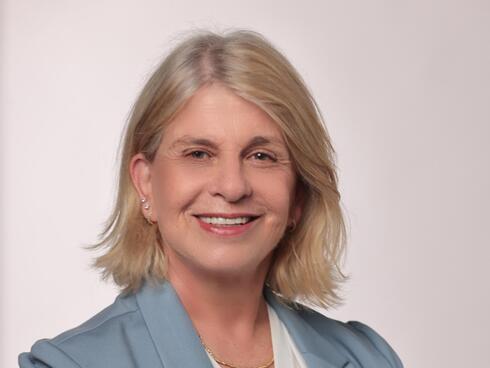
Opinion
Harness digital health to reduce burnout among doctors
"The primary challenge currently facing entrepreneurs and investors in the digital health field is to adapt to the next generation of developments to preserve and enhance the valuable relationship between doctors and patients," writes Team8's Varda Shalev
The health system in Israel continues to experience increasing burnout among doctors, with surveys indicating that approximately 40% are considering leaving the profession due to burnout. The primary cause of the rise in burnout is the growing shortage of doctors in Israel and globally. In Israel, the percentage of doctors is about 10% lower than in other developed countries, and according to the OECD Report for 2023, Israel is expected to face an extreme shortage in medical personnel. This shortage is particularly acute in the community health field, where 250 new family physicians need to be trained to make up for the number of retiring physicians, without accounting for the aging of the population and the natural increase in patient numbers. This shortage inevitably puts added pressure and burden on doctors, a factor that directly contributes to increasing burnout among them.
Having said that, in recent years, the digital health sector has witnessed significant development within high-tech industries. Startups and companies have raised some $7 billion as of the first half of 2023. The sector leverages technological innovations to perform medical tasks, ranging from doctor-patient interactions, whether in-person or virtual, synchronous and asynchronous, to decision-support systems that aid physicians to accurately diagnose and treat the patient. These systems employ advanced technologies and AI to analyze images, identify pathologies, and perform fast and advanced diagnoses, among other functions. These innovations are altering the work methods of all the players in the system, including hospitals, pharmaceutical companies, home care systems, and, of course, doctors. The adoption of digital health tools has accelerated, particularly since the outbreak of COVID-19, which triggered a surge in the demand for remotely provided solutions. Healthcare systems worldwide have recognized the need for rapid digital transformation. Israel, a global leader in the digital health field and open to technological innovations, has managed this transformation very successfully.
However, many studies have shown that digital innovation actually increased burnout due to the additional screen time, and medical treatment has become colder and more detached from the patient. Digital tools have complicated work processes and added many administrative work hours, requiring doctors to be available 24/7 for online inquiries. Furthermore, the burden on the doctors has increased as many patients seek medical treatment through both apps and websites, in addition to visiting the doctor’s clinic. This has led doctors, especially family physicians who spend a great deal of time filling out forms, reports, and administrative records, to feel like bureaucrats rather than practitioners, diminishing the expression of the knowledge they have acquired over the years.
Technological advancements in the last year, such as the introduction of generative AI and natural language processing systems capable of processing vast amounts of information and making it conveniently accessible, have the potential to change the exhausting routines faced by medical teams today. The change will be a win-win situation for everyone: Patients will benefit from a smarter healthcare system, and physicians will have more time, attention, and mental focus to devote to patient care. This will reduce the doctors’ workload and burnout, allowing them to focus on what they do best - practicing medicine.
Subsequently, we anticipate a trend of technological products that will facilitate the integration of capabilities of computer systems that currently operate separately, thereby optimizing the output of these systems. Today we are seeing the emergence of an increasing number of startups focusing on the development of online tools that enable doctors to maintain eye contact with the patient without having to type. This optimizes doctor-patient interaction and aids in decision-making and faster and earlier diagnosis. These tools will also guide patients in following doctor's instructions and in the optimal use of online doctor inquiries depending on the medical case, thereby making it possible to provide remote medical treatment and a proactive, preventive medical response to health issues before they worsen. Such technological advancements will undoubtedly free up more time for doctors to focus on treatment and patient care rather than paperwork.
At Team8's Digital Health Fund, we are witnessing innovative companies focusing on optimizing the system and growing profit margins, while emphasizing automation and online solutions. These companies prioritize the patient care teams when developing products, placing them at the center of considerations. The primary challenge currently facing entrepreneurs and investors in the digital health field is to adapt to the next generation of developments to preserve and enhance the valuable relationship between doctors and patients and to foster teamwork among practitioners. I believe that solving this issue will enable the creation of large and profitable companies that will have positive impacts, affecting the lives of doctors, patients, and the entire healthcare system.
The author is a managing partner leading the Digital Health Fund at Team8, an active family physician, an academic researcher, and a professor of epidemiology at Tel Aviv University.














